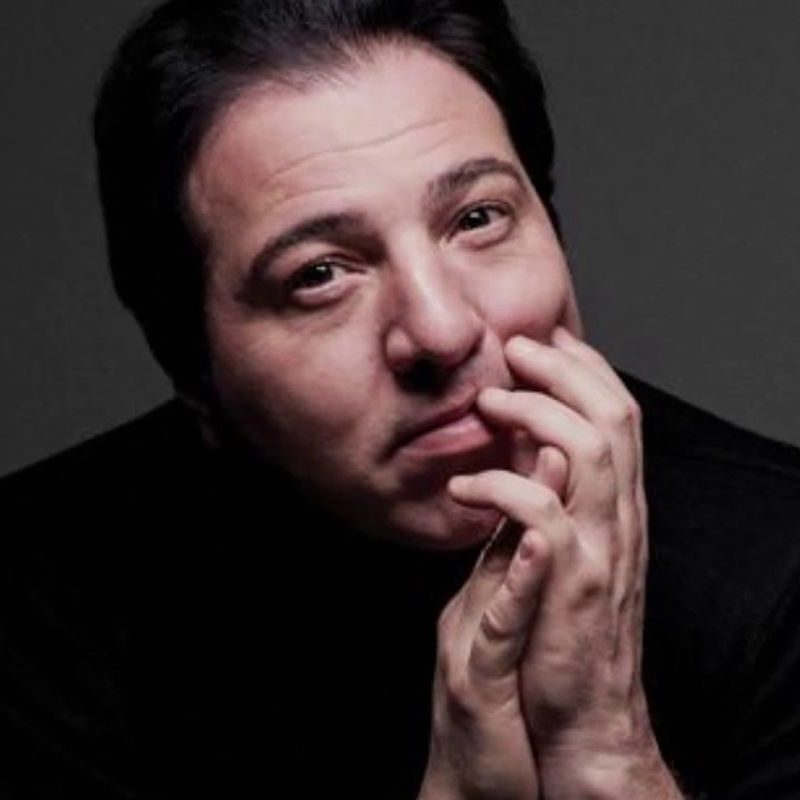With his extraordinary pianistic talents, Fazıl Say has been touching audiences and critics alike for more than twenty-five years, in a way that has become rare in the increasingly materialistic and elaborately organised classical music world. Concerts with this artist are something different. They are more direct, more open, more exciting; in short, they go straight to the heart. Which is exactly what the composer Aribert Reimann thought in 1986 when, during a visit to Ankara, he had the opportunity, more or less by chance, to appreciate the playing of the sixteen-year-old pianist. He immediately asked the American pianist David Levine, who was accompanying him on the trip, to come to the city’s conservatory, using the now much-quoted words: ‘You absolutely must hear him, this boy plays like a devil.’ Fazıl Say had his first piano lessons from Mithat Fenmen, who had himself studied with Alfred Cortot in Paris. Perhaps sensing just how talented his pupil was, Fenmen asked the boy to improvise every day on themes to do with his daily life before going on to complete his essential piano exercises and studies. This contact with free creative processes and forms are seen as the source of the immense improvisatory talent and the aesthetic outlook that make Fazıl Say the pianist and composer he is today. He has been commissioned to write music for, among others, the Salzburger Festspiele, the WDR and the Schleswig-Holstein Musik Festival, the Festspiele Mecklenburg- Vorpommern, the Konzerthaus Wien, the Dresdner Philharmonie, the Louis Vuitton Foundation, the Orpheus Chamber Orchestra and the BBC. His oeuvre includes four symphonies, two oratorios, various solo concertos and numerous works for piano and chamber music. From 1987 onwards, Fazıl Say fine-tuned his skills as a classical pianist with David Levine, first at the Musikhochschule “Robert Schumann” in Düsseldorf and later in Berlin. In addition, he regularly attended master classes with Menahem Pressler. His outstanding technique very quickly enabled him to master the so-called warhorses of the repertoire with masterful ease. It is precisely this blend of refinement (in Bach, Haydn and Mozart) and virtuoso brilliance in the works of Liszt, Mussorgsky and Beethoven that gained him victory at the Young Concert Artists international competition in New York in 1994. Since then he has played with all of the renowned American and European orchestras and numerous leading conductors, building up a multifaceted repertoire ranging from Bach, through the Viennese Classics (Haydn, Mozart and Beethoven) and the Romantics, right up to contemporary music, including his own piano compositions. Guest appearances have taken Fazıl Say to countless countries on all five continents; the French newspaper “Le Figaro” called him ‘a genius’. He also performs chamber music regularly: for many years he was part of a fantastic duo with the violinist Patricia Kopatchinskaja. Other notable collaborators include Maxim Vengerov, the Minetti Quartet, Nicolas Altstaedt and Marianne Crebassa. From 2005 to 2010, he was artist in residence at the Konzerthaus Dortmund; during the 2010/11 season he held the same position at the Konzerthaus Berlin. Fazıl Say was also a focal point of the programme of the Schleswig- Holstein Musik Festival in the summer of 2011. There have been further residencies and Fazıl Say festivals in Paris, Tokyo, Meran, Hamburg, and Istanbul. During the 2012/13 season Fazıl Say was the artist in residence at the hr- Sinfonieorchester Frankfurt and at the Rheingau Musik Festival 2013, where he was honoured with the Rheingau Musik Preis. In April 2015 Fazıl Say gave a successful concert with the Orpheus Chamber Orchestra at Carnegie Hall, New York, followed by a tour with concerts throughout Europe. In 2014 he was artist in residence at the Bodenseefestival, where he played 14 concerts. During their 2015/2016 season the Alte Oper Frankfurt and the Zürcher Kammerorchester invited him to be their Artist in Residence, he spent three seasons as Artist in Residence at the Festival der Nationen in Bad Wörishofen and was Composer in Residence at the Dresdner Philharmonie in 2018/19. In December 2016, Fazıl Say was awarded the International Beethoven Prize for Human Rights, Peace, Freedom, Poverty Reduction and Inclusion, in Bonn. In the autumn of 2017, he was awarded the Music Prize of the city of Duisburg. His recordings of works by Bach, Mozart, Beethoven, Gershwin and Stravinsky with Teldec Classics as well as Mussorgsky, Beethoven and his own works with the label naïve have been highly praised by critics and won several prizes, including three ECHO Klassik Awards. In 2014, his recording of Beethoven’s piano concerto No. 3 (with hr- Sinfonieorchester Frankfurt / Gianandrea Noseda) and Beethoven’s sonatas op. 111 and op. 27/2 Moonlight was released, as well as the CD ‘Say plays Say’, featuring his compositions for piano. Since 2016 Fazıl Say is an exclusive Warner Classics artist. In the autumn of 2016, his recording of all of Mozart sonatas was released on that label, for which, in 2017, Fazıl Say received his fourth ECHO Klassik award. Together with Nicolas Altstaedt, he recorded the album “4 Cities” (2017). In autumn 2017 Warner Classics released the Nocturnes Frédéric Chopins and the album “Secrets” with French songs, which he recorded together with Marianne Crebassa and which won the Gramophone Classical Music Award in 2018. His 2018 album is dedicated to Debussy and Satie, whilst with his most recent recording “Troy Sonata – Fazıl Say Plays Say” he presents only his own works.
Назад


